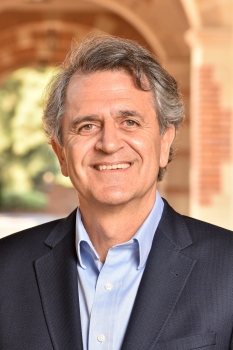David Cohen
David Cohen
Professor of Social Welfare and Associate Dean

Education:
Ph.D. in Social Welfare, University of California, Berkeley; M.S.W., Carleton University; B.A. in Psychology, McGill University
Areas of Interest:
Drugs/Controlled Substances, Mental HealthPhone:
(310) 206-2698Email:
cohen@luskin.ucla.eduOffice Location:
5214, Public AffairsRecently in the News
David Cohen’s research looks at psychoactive drugs – prescribed, licit, and illicit – and considers some of their wanted and unwanted effects as socio-cultural phenomena “constructed” through language, attitudes, and policies, and therefore sensitive to social conditions and social change. He questions the assumption that psychiatric drugs are prescribed because they mostly act on neurochemical substrates of disorders or symptoms, and he helped conceive the “drug centered” model of psychiatric drug action as an alternative. Public and private institutions in the U.S., Canada, and France have funded him to conduct clinical-neuropsychological, qualitative, and epidemiological studies of patients, professionals, and the general population to examine uses to which psychoactive drugs are put and the effects people perceive from these uses.
His work also documents harms induced by mental health treatments (iatrogenesis) and examines social factors contributing to these harms. He studies the deliberate spread of ignorance (agnotology) through the capture of scientific organizations and research by corporations or professions in the mental health system. He charts the rise and fall of schools of thought in this system and how practitioners and historians justify their adoption and repudiation. He pursues national and international comparative research on involuntary psychiatric detentions and treatments of people who experience extreme states.
In his counseling work, Cohen developed person-centered methods to assess how psychiatric drugs affect people, to safely discontinue from them, and to provide non-medical helpers entry into the contested psychopharmacology scene. He has given workshops on this topic around the world. He designed and launched the online CriticalThinkRx Critical Curriculum on Psychotropic Medication for child welfare professionals in 2009, since taken by thousands of practitioners and updated in 2018. Tested in a 16-month longitudinal controlled study, CriticalThinkRx was shown to reduce psychiatric prescribing to children in foster care. He has consulted with governments, agencies, courts, professional groups, community groups, care providers and legal professionals in several countries seeking to reduce harms of prescribed psychotropic drugs to children, adults, and older people in different settings.
Cohen has authored or co-authored over 120 articles and chapters. His edited books include Challenging the Therapeutic State (1990), Médicalisation et contrôle social (1996), and Critical New Perspectives on ADHD (2006). His co-authored books include Guide critique des médicaments de l’âme (1995), Your Drug May Be Your Problem (1999/2007), and Mad Science: Psychiatric Coercion, Diagnosis, and Drugs (2015). He has received awards for his publications, research, teaching, mentoring, and advocacy. His views have been published in leading newspapers and other popular media.
Cohen previously taught at University of Montreal and Florida International University. In Montreal, he directed the Health and Prevention Social Research Group, and at FIU, he was PhD Program Director and Interim Director of the School of Social Work. He held the Fulbright-Tocqueville Chair to France in 2012, and the Marjorie Crump Chair in Social Welfare at UCLA from 2013-2018. At the Luskin School, Cohen served as Associate Dean of Research and Faculty Development between 2018-2023 and is currently Associate Dean.
Selected recent publications
Incidences of Involuntary Psychiatric Detentions in 25 U.S. States (2020)
